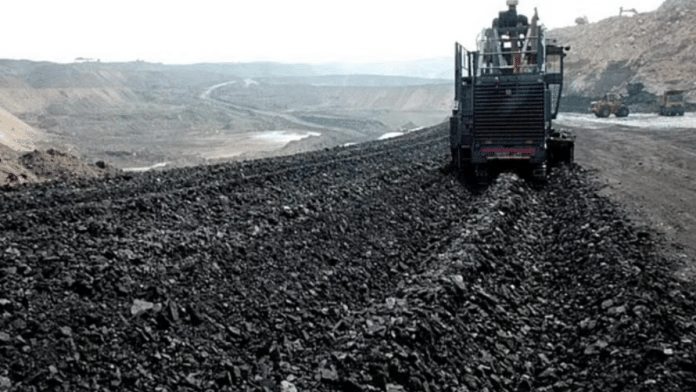New Delhi: Over 3.68 lakh trees will be cut in Chhattisgarh’s Hasdeo Arand for the Parsa East Kente Basan (PEKB) coal mines—an Adani Enterprises project, a reply by the Union Ministry of Environment, Forests and Climate Change (MoEFCC) before the Lok Sabha read Monday.
In response to a question by Communist Party of India (Marxist–Leninist) Liberation MP Raja Ram Singh seeking details on the number of trees impacted for the PEKB coal mining project in Chhattisgarh, Minister of State for Environment Kirti Vardhan Singh said that permissions for the PEKB project expansions were granted twice.
Citing the state government’s proposal for forest land diversions, the response read that 3,68,217 trees “will be affected”.
“The diversion of forest land is allowed subject to conditions including the Compensatory Afforestation (CA), payment of Net Present Value (NPV) and other appropriate mitigation measures,” the reply read.
Hasdeo Arand is among the largest contiguous dense forests—continuous stretches of forest lands—in central India. It spans around 1,70,000 hectares and is home to animals like the sloth bear, elephant, and rare plant species, including smilax and epiphytic orchids. The area is divided into 23 coal blocks, six of which are approved for mining.
According to government documents, the contracts for four of these approved mining blocks are with Adani Enterprises.
Also read: SC bars govt from giving post-facto environmental clearance citing citizens’ rights, conservation
Environmental impact
The Lok Sabha reply read that the Chhattisgarh Environmental Conservation Board (CECB) had held public hearings in Parsa, Kente, Basan, Salhi, Hariharpur, Ghartbara and Parogiya villages in the Sarguja district in 2009 for the project.
An Expert Appraisal Committee (EAC) was formed to consider the issues raised during the public hearing, after which the project was recommended for a mandatory environmental clearance (EC) before going ahead. The environmental clearance was granted in December 2011.
Another public hearing was conducted by the CECB in 2016 to increase the capacity of the coal mining and washery from 10 MTPA (million tonnes per annum) to 15 MTPA.
“The issues raised in the public hearing include mine discharge, arrangement of treatment of polluted water, transportation of coal, employment, culture and traditions, rehabilitation,” Monday’s reply read.
In 2022, another EC was granted to increase the coal production from 15 to 18 MTPA—a 20% increase.
“As part of this expansion project, the proponent has carried out a cumulative impact assessment for the coal mining and the coal washery,” the reply added.
(Edited by Viny Mishra)






